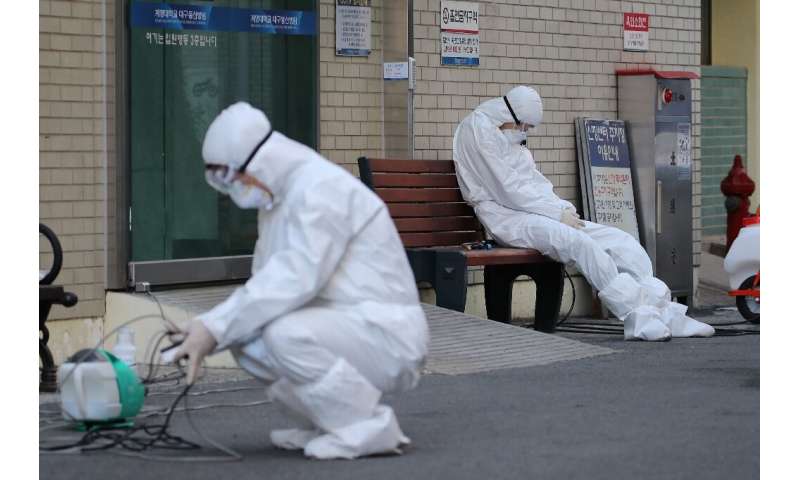
Fears of a global coronavirus pandemic deepened on Monday with a growing number of deaths in Iran and the worsening of other outbreaks across Asia, the Middle East and Europe.
The number of fatalities in China—where the virus emerged late last year—also continued to soar, with 150 more confirmed deaths, taking its official death toll to nearly 2,600.
Chinese authorities insist they are making progress in containing the virus, citing slowing infection rates thanks to unprecedented travel lockdowns and quarantines in or near the outbreak’s epicentre.
But the spread of the virus in other parts of the world has accelerated over the past week, with Iran, South Korea and Italy emerging as the worst new hotspots.
Afghanistan, Bahrain and Kuwait also announced on Monday their first cases of the virus, bringing the total number of countries with infections above 30.
In Iran, the confirmed death toll climbed on Monday by four to 12—the highest number of fatalities for any country outside of China.
There were also concerns the situation in Iran may be worse than officially acknowledged, with the semi-official ISNA news agency quoting a local lawmaker in hardest-hit Qom city that 50 people had died there.
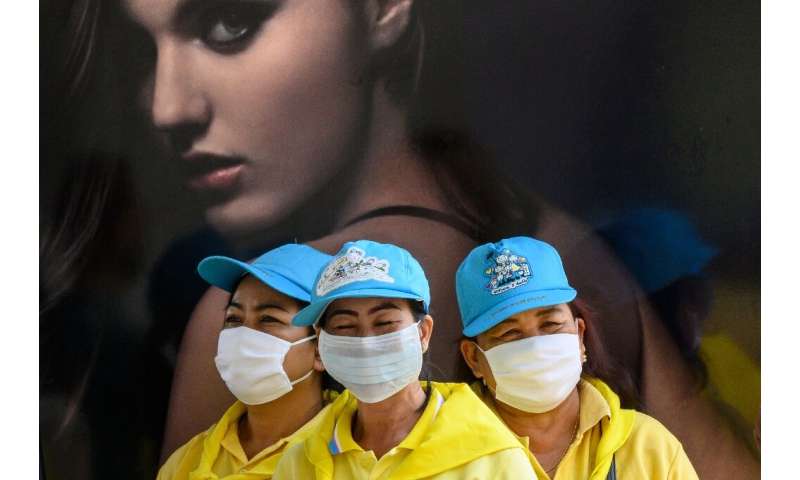
The Iranian government denied there had been 50 deaths and pledged transparency.
Even so, authorities have only reported 64 infections in Iran, an unusually small number that would mean an extremely high mortality rate.
In China, 2,592 people have died out of 77,000 infections.
‘Red alert’
South Korea has seen a rapid rise in infections since a cluster sprouted in a religious sect in the southern city of Daegu last week.
More than 200 infections and two more deaths were reported in South Korea on Monday, bringing the total cases to more than 830—by far the most outside China.
Eight people have died from the virus in South Korea, where President Moon Jae-in over the weekend raised the country’s virus alert to the highest “red” level.
As part of the containment efforts, school holidays were extended nationally and the start of the new K-league football season, scheduled for this weekend, was postponed.
At the main high-speed train station in Daegu, a normally bustling city of 2.5 million people, just a small trickle of commuters were seen.
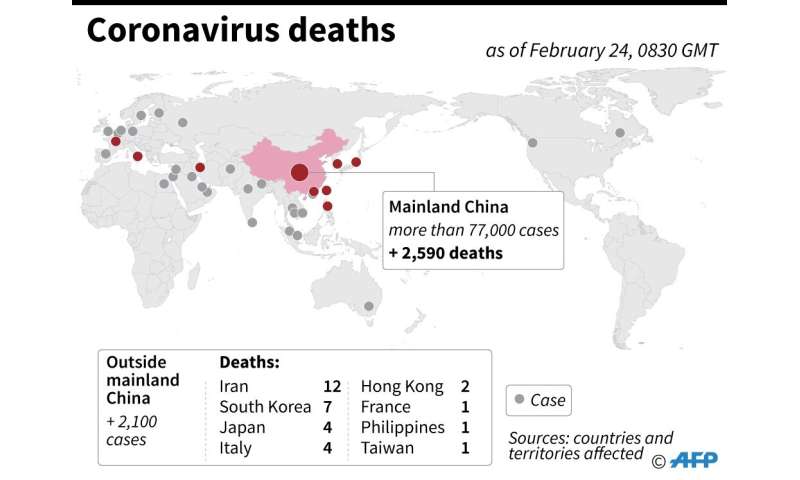
Football, fashion curbed
In Italy, a fourth fatality was confirmed on Monday, deepening fears about the virus spreading through Europe.
More than 150 people have been infected in Italy, where several Serie A football games were postponed over the weekend.
The famed Venice Carnival was also cut short and some Milan Fashion Week runway shows were cancelled.
More than 50,000 people in about a dozen northern Italian towns have been told to stay home, and police set up checkpoints to enforce a blockade.
Prime Minister Giuseppe Conte has said that residents could face weeks of lockdown in an effort to sit out the virus.
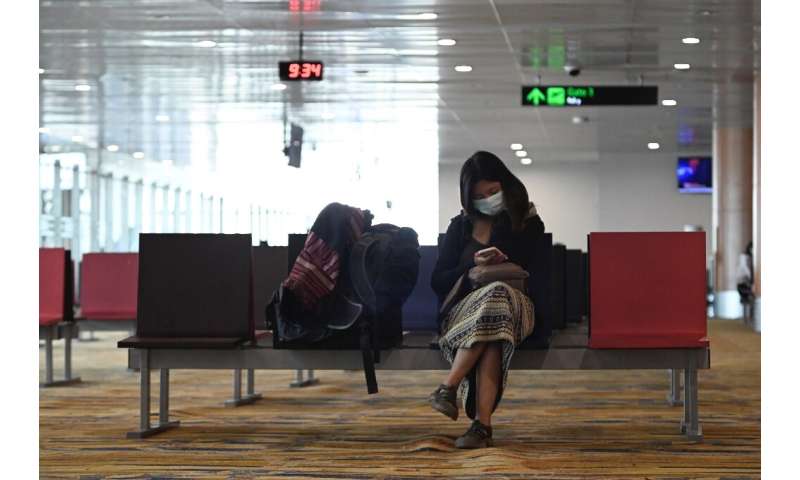
Economic toll
The virus is taking an increasingly heavy toll on the global economy, with many factories in China closed or subdued due to quarantines, and global travel choked.
Stock markets in Asia and Europe fell on Monday following the surge in infections and deaths around the world.
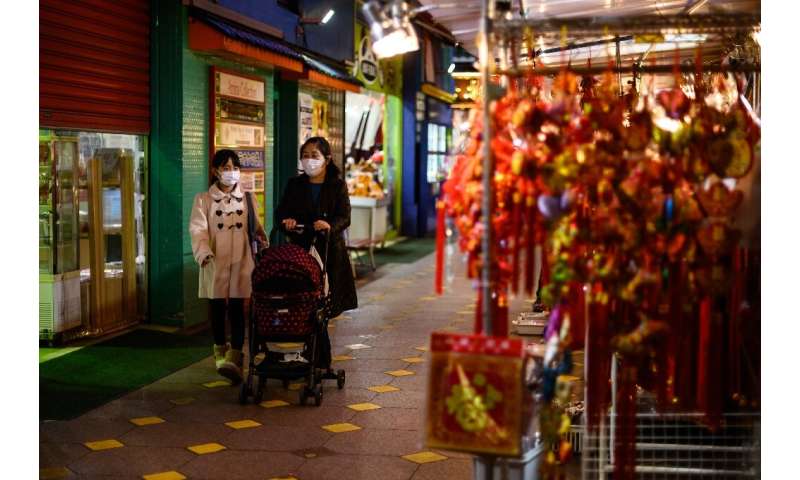
“While the coronavirus is probably slowing in China, it is speeding up elsewhere,” said Charles Gillams at RJMG Asset Management.
The International Monetary Fund warned Sunday that the epidemic was putting a “fragile” global economic recovery at risk.
G20 financial chiefs also voiced concern about its ripple effects around the world.
Chinese President Xi Jinping acknowledged Sunday that the virus had become the country’s “largest public health emergency” since the founding of the People’s Republic in 1949.
“This is a crisis for us and it is a big test,” Xi said in comments reported by state television.
Source: Read Full Article





